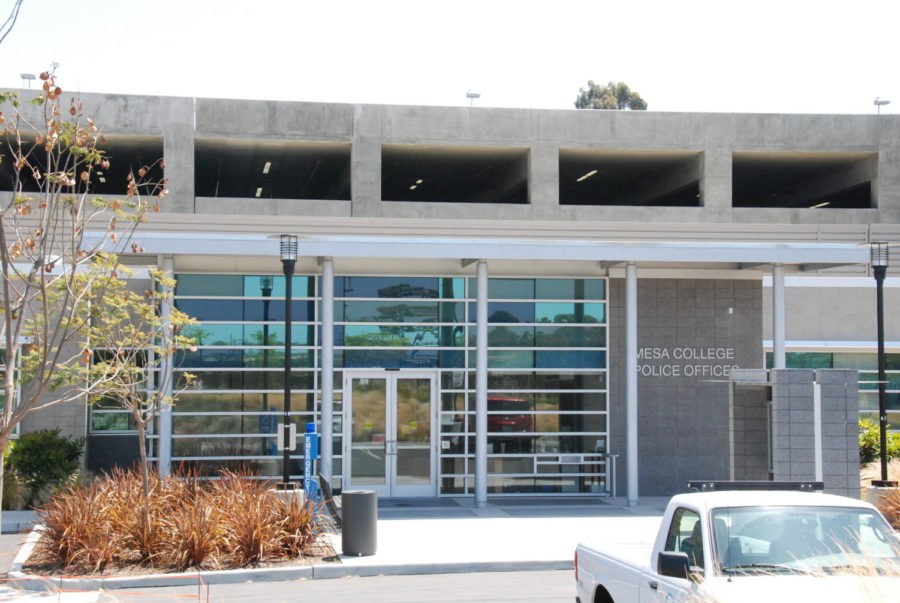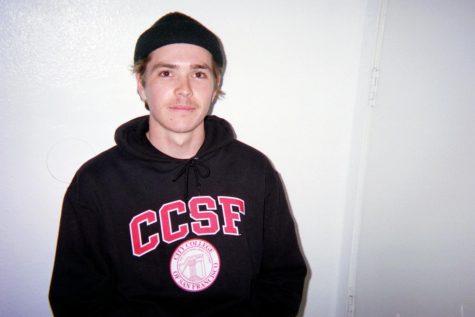A report was released on April 8 by The District Governance Council College Police Review Task Force outlining a list of six recommendations they believe will improve the District’s College Police, as well as ensure the safety of the student, faculty and staff population.
The SDCCD Preliminary Report on College Policing, authored by District Chancellor Constance M. Carroll, was the collective effort of the Task Force, a committee of SDCCD students, faculty and staff that formed as a response to systemic racism in the context of policing.
“The difficult task for all of us has been to separate the frustrations and concerns regarding the national incidents from the local situation within our District,” Carroll said. “Given the heightened emotions involved, this task has not been an easy one.”
The Task Force formed at the Aug. 2020 meeting of the District Governance Council (DGC), a representative body that maintains and provides oversight on matters concerning major districtwide issues, according to the report. Mesa College Professor of Chicano Studies Manuel Velez, a member of the Task Force and president of the Academic Senate, said the selection process for membership started by addressing appropriate representation.
“The membership includes representatives from the Academic Senates, Classified Senates, Associated Students, and a representative from the police,” Velez said. “It should also be noted that the four Academic Senate presidents serve directly on the task force.”
Moreover, the Task Force includes four students who were selected by the United Student Council, four administrators/staff selected by Carroll, four classified professionals selected by the Classified Senates and four faculty members selected by the Academic Senates, according to the report.
In April 2021, the Task Force issued its list of six recommendations, as well as a series of statistics regarding the College Police. The inclusion of the word recommendation as opposed to demand or imperative, Velez said, was “because that is [the Task Force’s] charge.”
“The task force was created at the chancellor’s urging as a way of responding to the ‘demands’ made by the public during several public comment segments of the [Board of Trustees] meetings,” he continued. “[H]owever, its main role is to make recommendations.”
Recommendation one requests that the Board allow for the continuation of the Task Force into the Spring 2021 semester.
“Given the significance of this work, it was important to grant an extension for the Task Force to complete its work in an informed manner,” the approval note in the report states.
The second recommendation recognizes a need for “a District Wide Climate Survey disaggregated by campus and demographic,” according to the report. Upon approval, this recommendation saw the assertion and distribution of a survey that will measure and review the “current atmosphere regarding SDCCD police,” according to the report. The survey was recently made public and available through Canvas.
“It’s important to gain a comprehensive understanding of how our community perceives the police in relation to our campus and the safety of our campus communities to ensure that all concerns are addressed,” Velez said.
Both recommendations three and four address concrete action; the third recommendation requests the exploration of the creation of a Crisis Counseling Response Team, and the following recommends the permanent creation of an SDCCD oversight board on police practices.
Although recommendation four was approved by the Board, a modification was made following a legal idiosyncrasy concerning collective bargaining agreements. Where the original recommendation only requests the “permanent creation of an SDCCD review/oversight board on police practices within our institutions,” moreover, that “the Taskforce…consult on [the] framework of the review/oversight board,” the modification calls for an Advisory Committee to be put in place.
“Because ‘oversight boards’ are not appropriate within an organization where personnel, legal, and other matters must be addressed through proper channels and in accordance with collective bargaining agreements, an Advisory Committee is approved,” the modification in the report states.
Velez noted that because oversight boards retain the ability to enact legal action, outside sources are necessary to ensure bargaining rights.
“Oversight boards usually include the ability to ‘call witnesses’ and to discipline employees and even fire them. Because of this, legal and personnel matters that are usually determined through collective bargaining come into play,” Velez said. “An oversight board may wind up violating some of these agreements.”
The development of a comprehensive training program to be made available to all District faculty and staff was outlined in recommendation five. The recommendation, which was approved by the Board, states that “the training should clarify respective roles, explain current processes including the appropriate intervention and handling of incidents and provide updates on ever-changing State laws, District policies and the role of police on our campuses.”
Moreover, recommendation six, which was partially approved by the Board, requests that the current hiring freeze of police personnel remain active. The reasoning behind its partial approval rests in the deficit of police personnel at the moment, as well as in the eight vacancies projected.
“At the start of the Task Force, there was one police officer vacancy and this position was being recruited, and it was frozen at the start of this work,” the report begins. “However, because there are now eight vacancies projected, the Chancellor decided to keep 50% frozen (4 positions) but authorized proceeding with 50% (4 positions) to ensure minimum coverage and safety.”
With a jump in crime statistics observable from the numbers contained within the report, such a move could have adverse consequences, according to the report. “Dramatically reducing police staffing could jeopardize public safety, especially as the District contemplates reopening and requiring health protocols to be followed by tens of thousands of students and employees, as well as in view of the recent rise in active-shooter and other violent national trends,” the report states.
The end of the report recognizes the service and achievements of the District’s College Police. Moreover, Carroll notes “the national atrocities we have all witnessed have not been experienced in the San Diego Community College District where the members of the College Police Department have been earnest and have taken pride in their work within the District.”
“Evaluating and improving the SDCCD Police is not our focus,” Velez said. “Reimagining how we ensure that our students are safe is.”
The work of the Task Force is ongoing and is expected to continue into the Fall 2021 semester.


